Rabbit farming in Switzerland is a process that begins with the farmers raising rabbits in their own homes. The farmers then take the rabbits to slaughterhouses, killing them and processing them into meat products. The farmers then sell the rabbit meat to supermarkets, restaurants, and other customers. In Switzerland, rabbits are farmed for their meat and fur. The Swiss Rabbit Breeders Association (SRBA) is the country’s main organization for rabbit breeders.
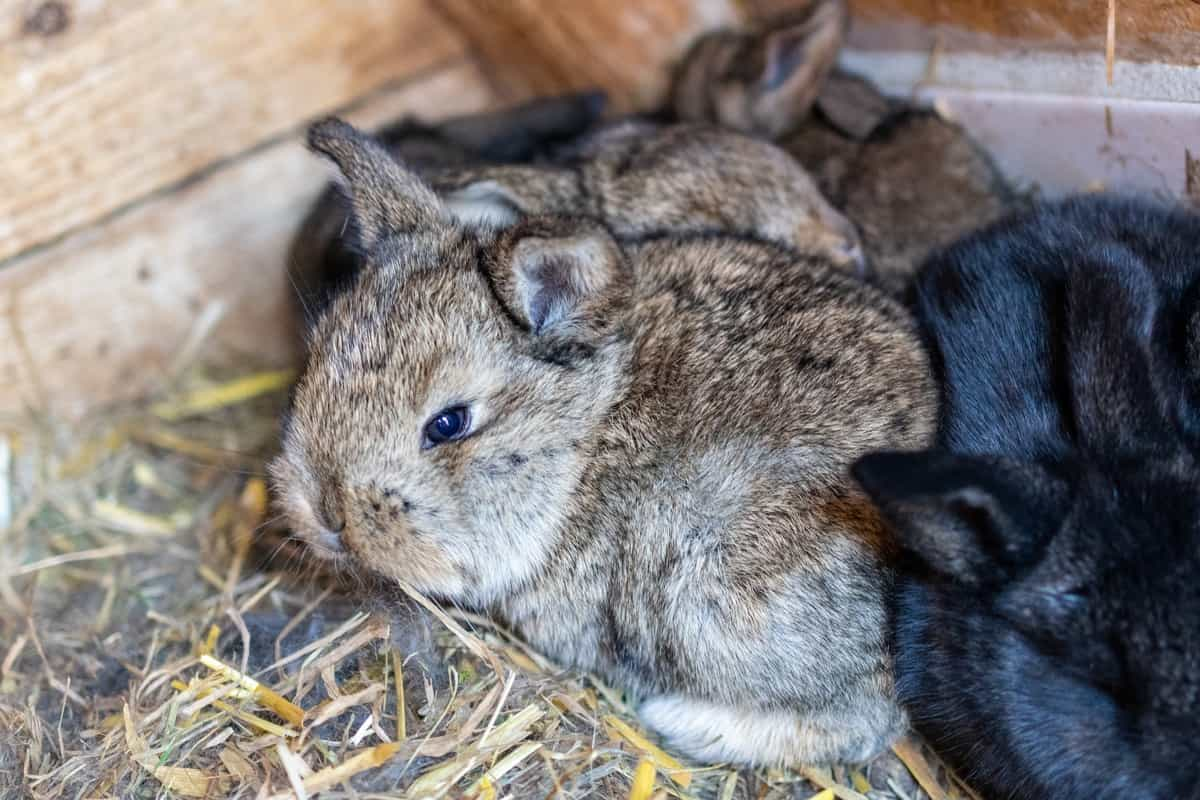
How to start rabbit farming in Switzerland
Rabbit farming importance in Switzerland
- Rabbit farming is an important part of Switzerland’s agricultural economy. Rabbit meat is a popular and healthy food choice in Switzerland, and the country is one of the world’s leading producers of rabbits for meat.
- Rabbits are relatively easy to farm and have a short life cycle, making them ideal for commercial production. In addition, Swiss rabbit farmers produce high-quality meat that is sold fresh or frozen in supermarkets and butcher shops across the country.
- Rabbit farming is an environmentally friendly way of producing meat, as rabbits have a very low environmental impact. They are also a very efficient use of resources, as they convert feed into meat more efficiently than any other livestock animal.
Requirements for Rabbit farming in Switzerland
- To start a rabbit farm in Switzerland, there are several things you will need to take into account. Firstly, you must obtain a farming license from the canton you plan to operate. Next, you must purchase or lease land to build your farm. Once you have your land, you will need to build appropriate housing for your rabbits and purchase the necessary equipment for their care. Finally, you will need to acquire rabbits from a reputable breeder.
- Before starting your farm, you must obtain a farming license from the canton where you plan to operate. Each canton has its own set of regulations governing farms, so familiarize yourself with the requirements of the canton in which you plan to operate. Once you have obtained your farming license, you can purchase or lease land to build your farm.
- When choosing a location for your farm, there are several things you will need to take into account. First, the climate in Switzerland can be quite harsh, so you will need to choose a location that is protected from the cold winds and has access to sunlight. Second, since rabbits are social animals, they do best when they have plenty of space to run and play. For this reason, you must choose a location with plenty of open space.
In case you missed it: How to Start Rabbit Farming in Nigeria: Business Plan, Loan, Subsidy, Cost, Profit, and Management
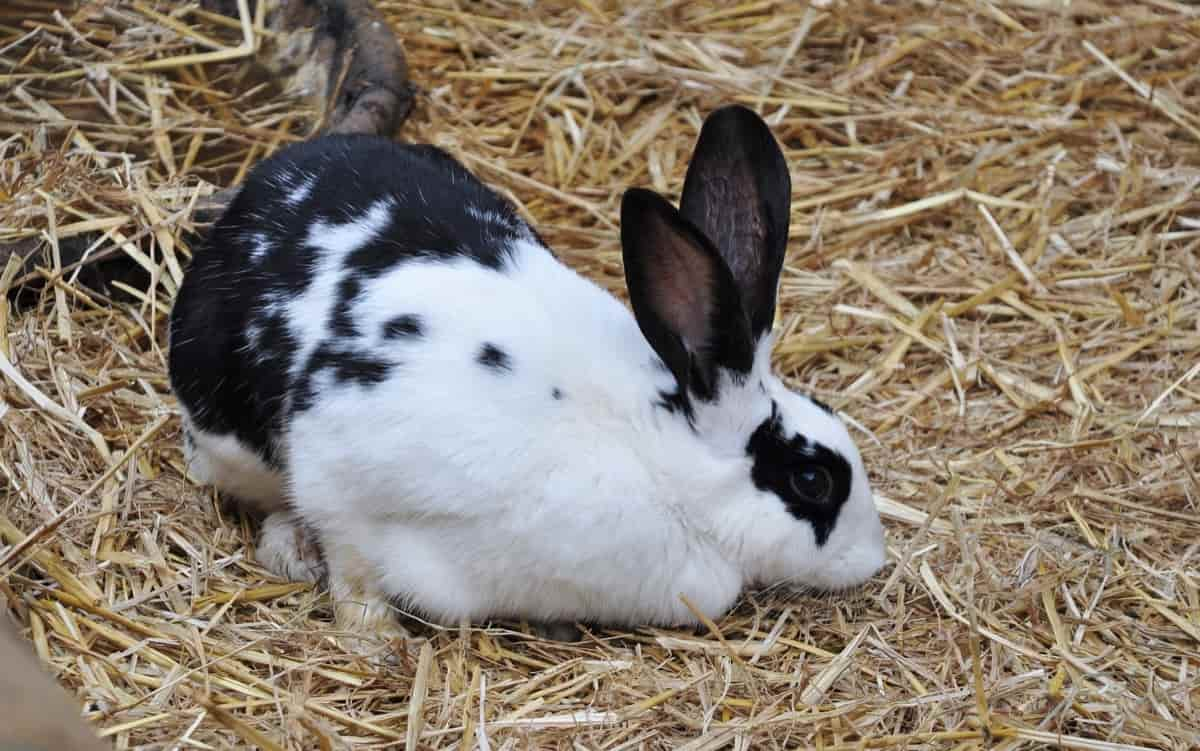
Small scale Rabbit farming in Switzerland
For those interested in small-scale rabbit farming, Switzerland is a great option. Switzerland has a long tradition of raising rabbits and has some of the best infrastructures for doing so. In addition, several small-scale farmers can provide high-quality rabbits for meat and fur. The Swiss government provides several incentives for rabbit farmers, including subsidies for feed and equipment. In addition, several private organizations support the industry.
The Swiss Rabbit Breeders Association is one such organization that provides information and resources for breeders. Rabbit farming in Switzerland is highly regulated and controlled. This ensures that only healthy animals are raised and that the industry meets strict environmental standards. Farmers must follow specific guidelines to maintain their certification. The climate in Switzerland is ideal for raising rabbits outdoors.
The summers are warm, and the winters are mild, which allows rabbits to be kept outside year-round. This results in a higher quality product, as the animals are not confined to small spaces indoors. The cost of living in Switzerland is relatively high, but this is offset by the fact that there are very few health risks associated with rabbit farming. In addition, the market for rabbit meat and fur is quite strong, making it a profitable venture for those interested in small-scale farming.
Rabbit farming areas in Switzerland
Rabbit farming in Switzerland is mostly concentrated in the northwestern and central parts of the country. The main cantons for rabbit production are Bern, Aargau, Solothurn, Thurgau, and Zurich. Other cantons have a few farms, such as Ticino, Graubünden, and Valais. The main reasons for the concentration of farms in these areas are the availability of suitable land and climate. The Swiss Alps provide good grazing for rabbits, and the moderate temperatures in the plains are ideal for raising rabbits.
Why Swiss Rabbit farmers are the best in the world?
Swiss Rabbit farmers are the best in the world for several reasons. Firstly, they have access to some of the best quality hay and vegetables in the world, which makes for healthy rabbits. Second, they have years of experience in breeding and raising rabbits. Third, they take excellent care of their rabbits, providing them with clean housing and plenty of space to exercise. Finally, Swiss Rabbit farmers only sell their rabbits to reputable dealers who will give them good homes.
In case you missed it: How this Farmer Made 1 Lakh from Rabbit Farming – A Success Story
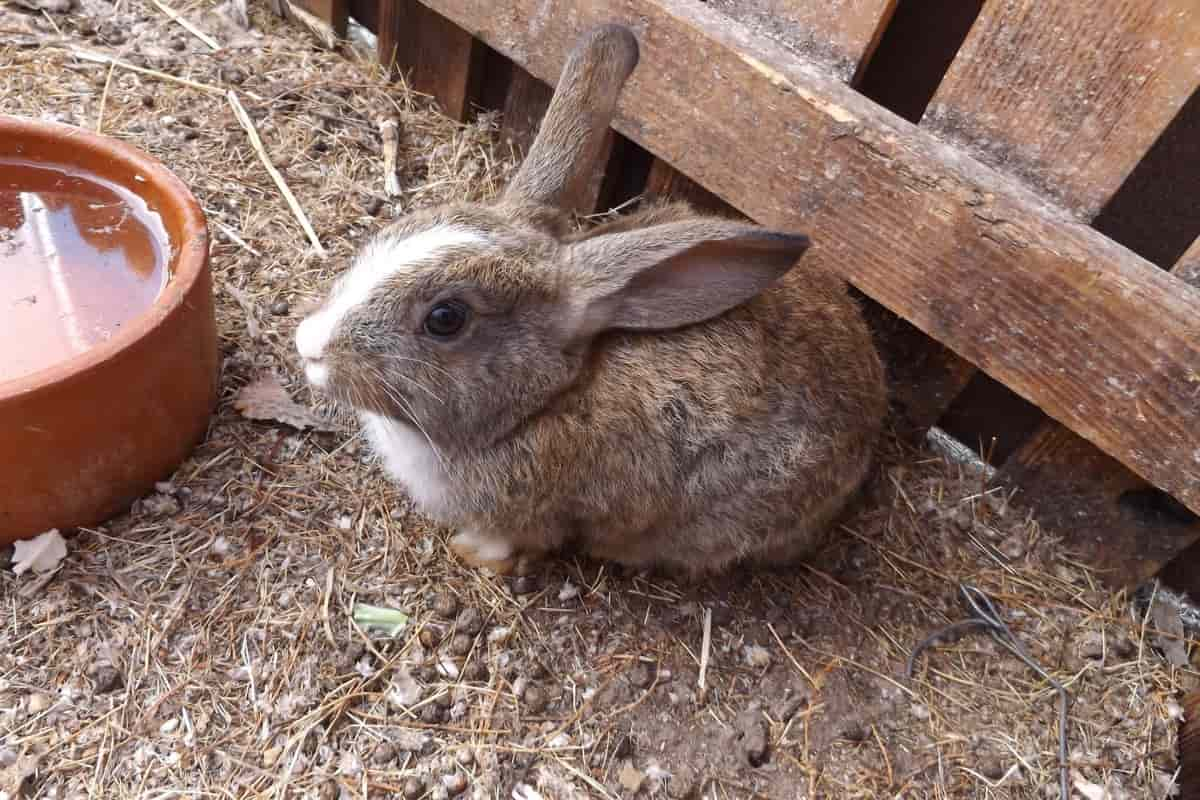
Steps to start rabbit farming in Switzerland
- Rabbits are relatively easy to care for and require less space than other livestock animals. They can be fed various diets, including hay, pellets, vegetables, and fruits. Rabbits can also be trained to use a litter box, making them easy to keep as house pets.
- Assuming you are starting a commercial rabbit farming business in Switzerland, the first step is to obtain the necessary permits from the cantonal or communal authorities.
- The next step is finding suitable land to build your farm. Once you have secured the land, you must build housing for your rabbits and install all the necessary equipment.
- You must purchase rabbits from a reputable breeder. Once you have your rabbits, it is important to take good care of them and provide them with a healthy diet and plenty of exercises.
- Rabbits reproduce quickly, so you must sell some of your offspring to make a profit. There are several ways to market and sell your rabbits, such as through online channels or farmer’s markets.
Tips on raising rabbits in Switzerland
- Choose a location for your rabbit farm – The climate in Switzerland is well suited for raising rabbits.
- Select the type of rabbits you want to raise – There are many breeds of rabbits, each with unique characteristics.
- Decide on the purpose of your rabbit farm – Are you raising rabbits for meat, fur, or pets?
- Purchase healthy stock from a reputable breeder – Be sure to vaccinate your rabbits against common diseases such as myxomatosis and rabbit hemorrhagic disease.
- Feed them a healthy diet – A healthy diet is essential for any animal, especially rabbits. They need a lot of hay, fresh vegetables, and water. Avoid processed foods and sugary snacks.
- Build or purchase housing for your rabbits – The size and type of housing will depend on the number of rabbits you plan to keep and the climate in your area.
- Set up a feeding and watering system for your rabbits – Provide them with a diet of fresh vegetables and water daily.
- Keep your rabbitry clean to prevent disease outbreaks – Clean all cages, feeders, and water bottles regularly with hot, soapy water.
- Inspect your rabbits regularly for signs of illness and parasites – Have any sick animals treated by a veterinarian immediately.
In case you missed it: Organic Rabbit Farming – Production, Raising Practices
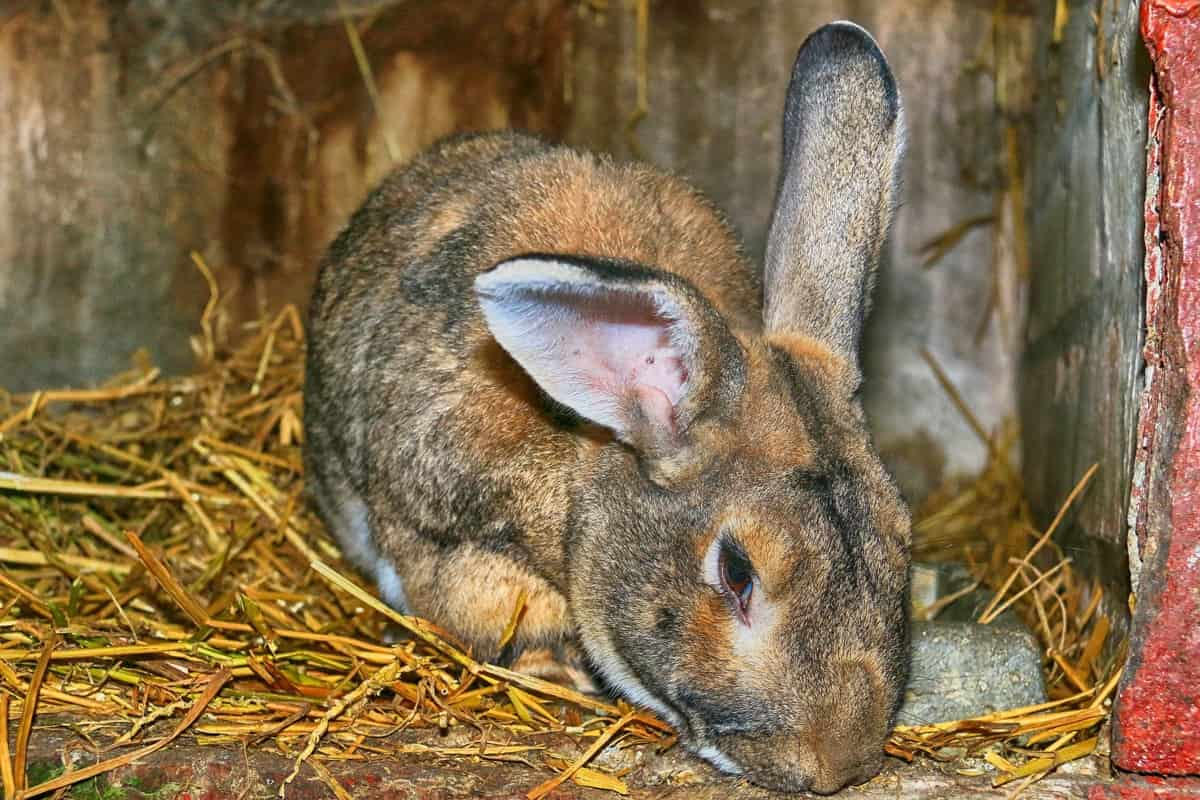
Rabbit production methods in Switzerland
- Cage production is the most intensive form of rabbit farming and typically involves keeping rabbits in small wire cages indoors. This production method is characterized by high stocking densities and often results in poor welfare for the rabbits.
- Free-range rabbit production is less intensive and typically involves keeping rabbits in larger hutches outdoors. This production method allows for more natural behaviors and improves rabbits’ welfare. However, free-range systems are more susceptible to disease outbreaks, as the rabbits have greater contact with potential pathogens.
Rabbit breeds available in Switzerland
- In Switzerland, 44 rabbit breeds are recognized in more than 100 colors.
- There are many common breeds of rabbits in Switzerland. Some of the most popular include the Giant Chinchilla, Standard Chinchilla, Dutch, Swiss Feh, Tri-Coloured Checkered, Swiss Fox, Swiss Checkered rabbits, English Lop, the Netherland Dwarf, and the Mini Rex.
- Standard Chinchillas are the most popular breed in Switzerland and are known for their large size and thick fur.
- Netherland Dwarfs are the second most popular breed known for their small size and playful personality.
- Mini Rexes are the third most popular breed for their unique fur pattern and friendly disposition.
In case you missed it: Rabbit Diseases, Treatment, Rabbit Care
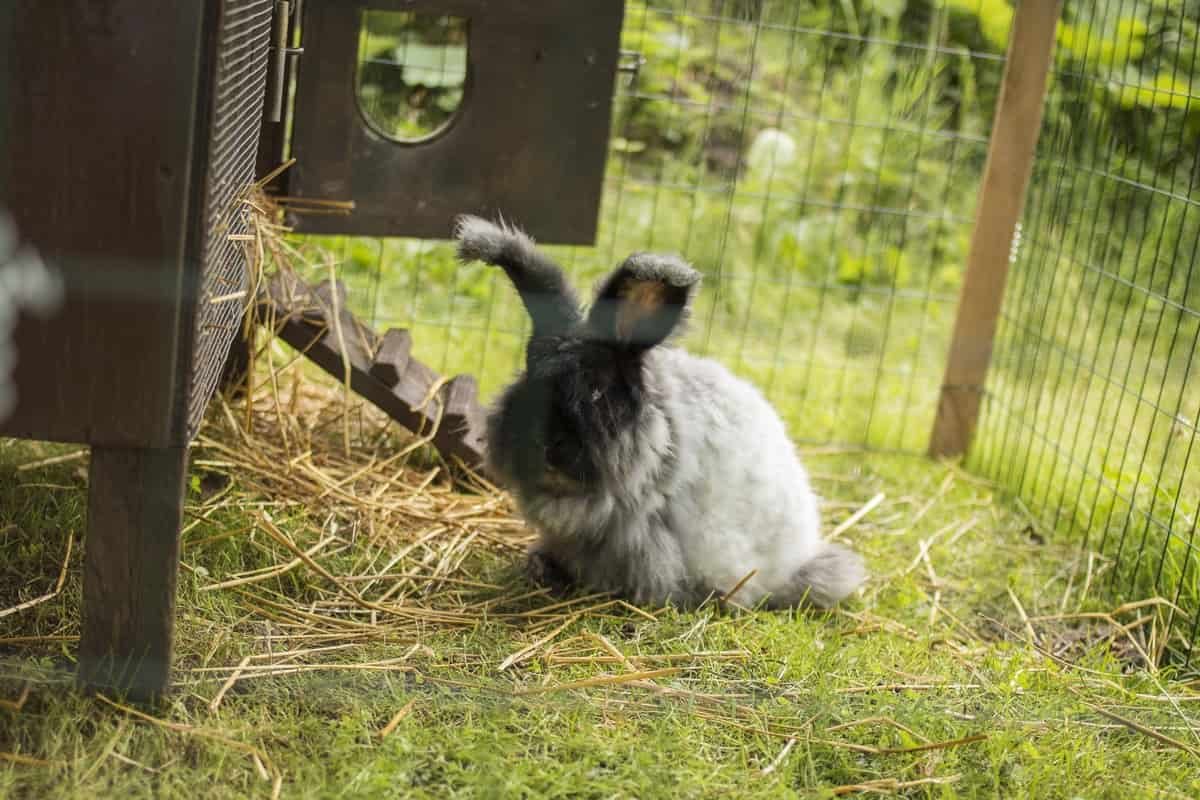
Is Rabbit farming profitable in Switzerland?
Yes, rabbit farming can be profitable in Switzerland. However, several factors must be remembered when determining if a farm is profitable, including the cost of feed, housing, and labor.
Care and management of Rabbit Farm in Switzerland
- There are many different types of feed available for rabbits, but you’ll need to make sure you choose one that is appropriate for the climate and your rabbits’ needs. You’ll also need to find a reliable source of hay, which is important in a rabbit’s diet. Finally, you’ll need to think about housing.
- Rabbits can live in hutches or cages but need enough space to move around and exercise. Make sure you have enough room for your rabbits and that their housing is safe and clean.
- Rabbits must be handled gently and with care. They should not be subjected to any unnecessary stress or discomfort.
- Rabbits need a diet of hay, fresh vegetables, and water. A healthy diet is essential for keeping your rabbits healthy and happy.
- Rabbits require regular exercise. Please provide them with plenty of space to run and play.
- Rabbits are social animals and need companionship. Therefore, consider getting two or more rabbits so they can socialize with each other.
- Any sick or injured rabbit must be treated immediately by a qualified veterinarian.
- All rabbits on Swiss farms must be vaccinated against rabbiting, myxomatosis, and vesicular stomatitis virus (VSV). These diseases are all potentially fatal to rabbits but can be easily prevented with vaccination.
Rabbit farming laws in Switzerland
A set of strict animal welfare laws regulates rabbit farming in Switzerland. These laws require that rabbits are kept in clean, spacious conditions with plenty of access to fresh water and food. The SRBA ensures that all rabbit breeders in Switzerland adhere to these animal welfare laws. As a result, rabbit farming in Switzerland is a well-regulated industry that takes animal welfare seriously. Rabbit farming is an important part of the Swiss economy, contributing over CHF 200 million annually to GDP.
Rabbit farming loans and subsidies in Switzerland
- The Swiss government offers a variety of loans and subsidies to farmers, including those who farm rabbits. To be eligible for these programs, farmers must meet certain criteria, like having a minimum amount of land or animals.
- Loans and subsidies can help farmers cover the costs of buying rabbits, feed, equipment, and other necessary supplies. They can also help with the costs of building rabbit housing and making other improvements to the farm.
- The Swiss government offers several different types of loans and subsidies, each with its eligibility requirements and terms. Some of these programs are administered by the federal government, while cantonal governments or private organizations manage others.
- Farmers interested in starting a rabbit farm in Switzerland should research the various loan and subsidy programs available. This will help them find the best meets their needs and gives them the greatest chance of success.
In case you missed it: Rabbit Feed Chart and Weight Chart
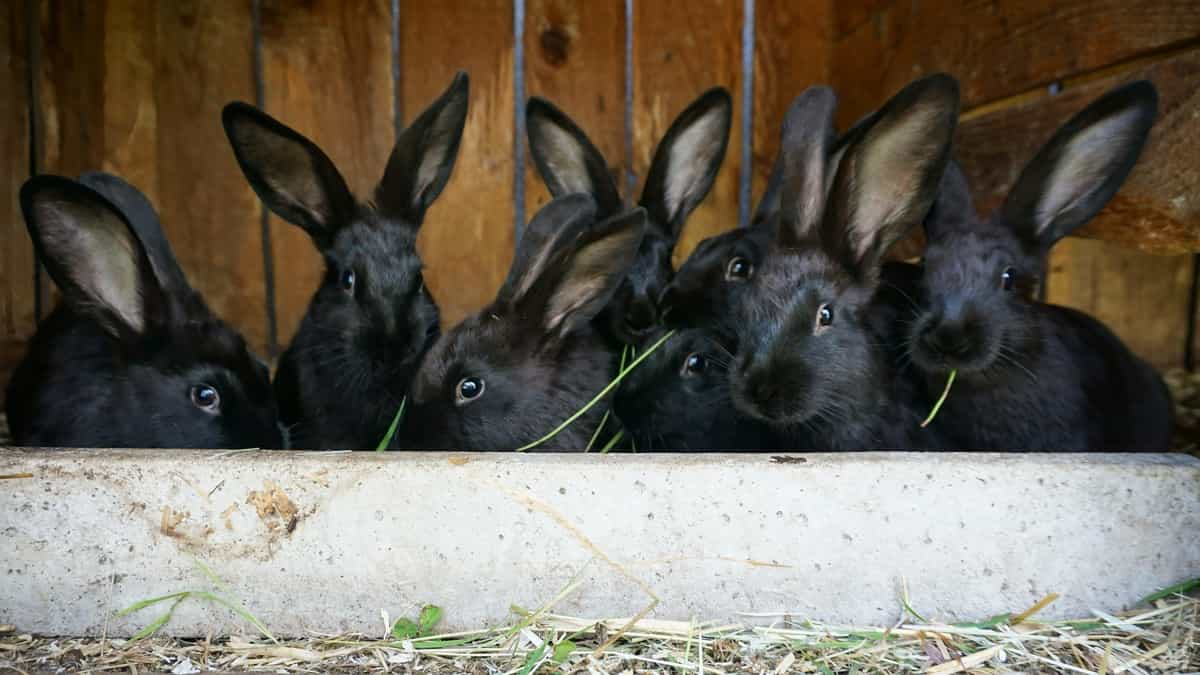
Rabbit farming problems in Switzerland
- Rabbit farming has been a growing industry in Switzerland for several years. However, several problems have arisen in recent years that are putting the industry at risk.
- One of the biggest problems is the high cost of feed. Swiss rabbit farmers have to import most of their feed, and the cost of doing so has been rising steadily. This is putting a strain on many farms; some have even had to go out of business.
- Another problem is a disease. Rabbit farming is particularly susceptible to myxomatosis and rabbit hemorrhagic disease. These diseases can kill entire herds of rabbits and can be difficult to control.
- Finally, there is the issue of competition from other countries. The Swiss rabbit industry used to be one of the world’s leading producers, but it has been losing market share in recent years. This is partly because other countries, such as China, can produce rabbits more cheaply.
- These problems have caused the number of rabbit farms in Switzerland to decline sharply in recent years. If the trend continues, it could end the Swiss rabbit farming industry.
Rabbit farming challenges in Switzerland
Rabbit farming in Switzerland is challenging, as the country’s mountainous terrain and harsh winters make it difficult to provide adequate housing and care for rabbits. In addition, the Swiss government imposes strict regulations on rabbit farmers, including strict limits on the number of rabbits that can be kept per farm and requirements that all rabbits be vaccinated against certain diseases.
- Finding the right location: The climate in Switzerland can vary greatly from region to region, so it is important to find a location with the ideal climate for rabbits.
- Cost of land: Farmland in Switzerland is expensive, so farmers need to be efficient and use every square meter wisely.
- Strict regulations: There are strict regulations governing animal husbandry in Switzerland, which farmers must adhere to. This includes ensuring that rabbits have enough space and access to fresh water and food and are not subject to stressful conditions. As a result of these challenges, there are only a handful of commercial rabbit farms in Switzerland.
Housing for commercial Rabbit farming in Switzerland
Rabbits are usually housed in cages or hutches on commercial rabbit farms. However, the size and type of housing will change depending on the specific needs of the rabbits. Some common housing options for rabbits in Switzerland include:
- Cages: Cages are commonly used to house rabbits on commercial farms. They provide a safe and secure animal environment and can be easily cleaned and maintained.
- Hutches: Hutches are another common housing option for rabbits in Switzerland. They are larger than cages and can provide more space for the animals to move around. However, hutches must be regularly cleaned to prevent the build-up of dirt and debris.
- Barns: Barns are sometimes used to house rabbits on commercial farms. They offer a more spacious environment for the animals but may be more difficult to clean and maintain than cages or hutches.
Cost of starting a rabbit farm in Switzerland
The cost of starting a rabbit farm in Switzerland can vary depending on the size and type of operation. For example, a small hobby farm may cost around 1,000 Swiss francs (CHF) to set up, while a larger commercial operation may cost up to 10,000 CHF. The main costs associated with setting up a rabbit farm include cages or hutches, feeders, water bottles, and bedding. Other costs can include fencing, equipment for handling and slaughtering rabbits, and marketing expenses.
Conclusion
Rabbit farming in Switzerland is environmentally friendly. Swiss farmers take good care of their rabbits, and the animals are well-fed and healthy. Because rabbits reproduce quickly, they provide a consistent meat supply without putting strain on the environment. The Swiss government supports rabbit farmers through subsidies and research grants, as it recognizes the importance of the industry to the country’s economy and agriculture sector.
- How to Make Houseplants Bushy: Effective Tips and Ideas
- Innovative Strategies for Boosting Coconut Pollination and Yield
- Pollination Strategies for Maximum Pumpkin Yield
- The Complete Guide to Chicken Fattening: Strategies for Maximum Growth
- Natural Solutions for Tulip Problems: 100% Effective Remedies for Leaf and Bulb-Related Issues
- Revolutionizing Citrus Preservation: Towards a Healthier, Greener Future
- Natural Solutions for Peony Leaf and Flower Problems: 100% Effective Remedies
- Maximizing Profits with Avocado Contract Farming in India: A Comprehensive Guide
- Natural Solutions for Hydrangea Problems: 100% Effective Remedies for Leaf and Flowers
- The Ultimate Guide to Choosing the Perfect Foliage Friend: Bringing Life Indoors
- From Sunlight to Sustainability: 15 Ways to Use Solar Technology in Agriculture
- The Ultimate Guide to Dong Tao Chicken: Exploring from History to Raising
- The Eco-Friendly Makeover: How to Convert Your Unused Swimming Pool into a Fish Pond
- Mastering the Art of Delaware Chicken Farming: Essentials for Healthy Backyard Flocks
- 20 Best Homemade Fertilizers for Money Plant: DIY Recipes and Application Methods
- How to Craft a Comprehensive Free-Range Chicken Farming Business Plan
- Brighten Your Flock: Raising Easter Egger Chickens for Beauty and Bounty
- How to Optimize Your Poultry Egg Farm Business Plan with These Strategies
- Subsidy for Spirulina Cultivation: How Indian Government Schemes Encouraging Spirulina Farmers
- Ultimate Guide to Raising Dominique Chickens: Breeding, Feeding, Egg-Production, and Care
- Mastering the Art of Raising Jersey Giant Chickens: Care, Feeding, and More
- Ultimate Guide to Raising Legbar Chickens: Breeding, Farming Practices, Diet, Egg-Production
- How to Raise Welsummer Chickens: A Comprehensive Guide for Beginners
- How to Protect Indoor Plants in Winter: A Comprehensive Guide
- Ultimate Guide to Grow Bag Gardening: Tips, Tricks, and Planting Ideas for Urban Gardeners
- Guide to Lotus Cultivation: How to Propagate, Plant, Grow, Care, Cost, and Profit
- Agriculture Drone Subsidy Scheme: Government Kisan Subsidy, License, and How to Apply Online
- Ultimate Guide to Raising Araucana Chickens: Breed Profile, Farming Economics, Diet, and Care
- Bringing Hydroponics to Classroom: Importance, Benefits of Learning for School Students
- Ultimate Guide to Raising Polish Chickens: Breed Profile, Farming Economics, Diet, and Care
- Ultimate Guide to Raising Australorp Chickens: Profile, Farming Economics, Egg Production, Diet, and Care
- Silkie Chicken Farming: Raising Practices, Varieties, Egg Production, Diet, and Care
- Sussex Chicken Farming: Raising Practices, Varieties, Egg Production, Diet and Care
- Homemade Feed Formulations for Livestock: Discover Cost-effective Starter to Finisher Feed Recipes
- 20 Best Pig Weight Gain Supplements: Top Swine Weight Gain Formulas
- Ultimate Guide to Elderberry Farming: Propagation, Planting, Yield, Cost, and Profit